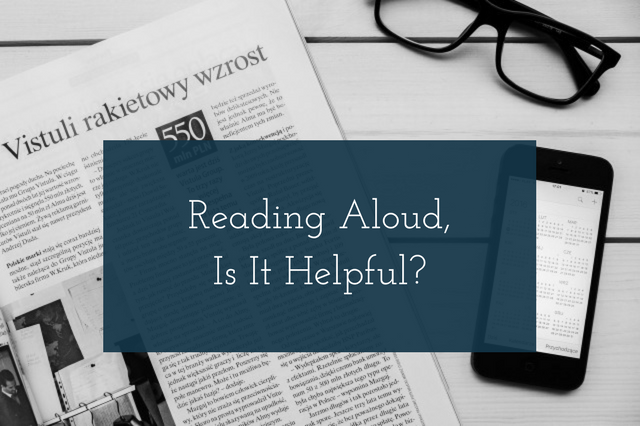
A few days ago, I was watching a video of Benny and Olly Richards talking about 7 polyglot questions as you can see below. One of the questions being asked is, is reading aloud helpful when learning a language?
I thought it would be a good idea to write about it. Whatever your opinion or preference is, let’s dive in on this interesting topic from a language-learning view.
Reading aloud lets you treat written text like a script, helping you practice pronunciation, intonation, and expression.
It builds confidence, especially when you use familiar words, because you learn to say them clearly and with feeling.
However, real-life conversations aren’t scripted: reading aloud doesn’t always help you respond to unexpected or spontaneous dialogue.
It may work well for review or practice, but it has limits. Relying solely on it won’t fully prepare you for natural speaking situations.
The text you’re reading serves as a script. It may or may not relate to you. Look at how actors, presenters, news anchors, and so on speak. With it, they speak flawlessly as if it’s their own words and not ready-made.
When I was a child, I used to think that news anchors memorized all those… my innocent mind.
Think of it as a lyric. When you sing a song you don’t sing quietly. You sing it out loud. That way you’ll remember it easily. If you can relate the texts to your everyday life, that’s even better.
Take Adele’s song ‘Hello’ as an example.
"Either it sounds right or it doesn't sound right."- Isaac Asimov
If it’s not related to you in any way, it still does help, in terms of pronunciation. You can learn to pronounce each word clearly. For difficult words try to pronounce them slowly to avoid tongue-twisting.
It can also help boost your confidence. Somewhere in the text, there have to be words that you commonly use in your life. And when you already know how to pronounce those words, that’s when the confidence kicks in.
Reading aloud helps improve your diction and expression, which you will then transfer into your speaking voice and writing voice. - Kirtti Shakthawatt
As said in the above quote, some people have a habit of speaking fast, especially when nervous. Reading aloud can help because when reading you need to have intonation to make it more interesting, and the same with speaking.
If you speak with the same bland and straight tone, people will be bored and after half an hour (probably less than that) they’ll become less interested.
While text can help us speak smoothly, unfortunately, our life is not based on scripts. Yes, certain scenarios would fit with certain scripts like introducing yourself to people, ordering food and drinks, asking for directions, and so forth.
But beyond that, it’s just you and how you plan to bring your thoughts to life situations.

Let’s say you are talking to someone in your target language, and somewhere in the middle of the conversation, that person is asking you something that is not written in the script.
What would you do then? It’s not like you can say “Sorry, I don’t have the answer to that in my scripts” which you can’t.
If you can reply to it with whatever is left of that limited vocabulary of yours plus with the broken language you have, that wouldn’t be so bad, at least.
Some people find reading aloud helpful because it keeps them focused on whatever they are reading. Others may find it incredibly distracting.
As for me, among the many methods I use, I always make it a habit of reading out loud when I read my blogs (proofread) or other people’s blogs and/or articles.
How about you? Do you think it’s helpful? Which one do you prefer?